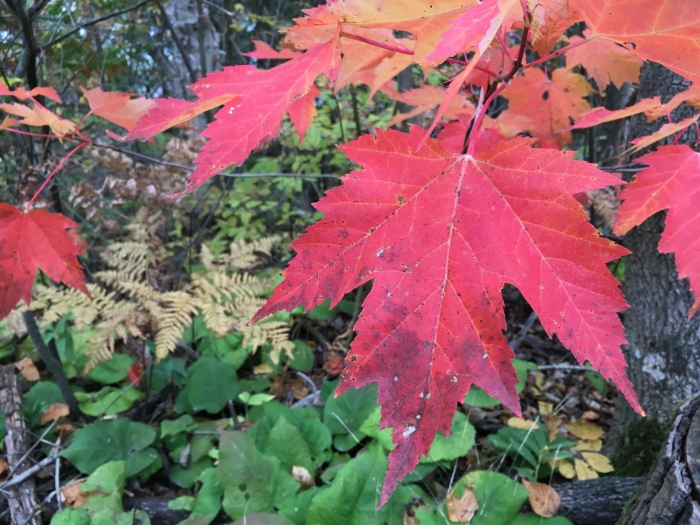Freeman Maple
(Acer ×freemanii)
Freeman Maple (Acer ×freemanii)
/
/

Kathleen Houlahan Chayer
Public Domain
Image By:
Kathleen Houlahan Chayer
Recorded By:
Copyright:
Public Domain
Copyright Notice:
Photo by: Kathleen Houlahan Chayer | License Type: Public Domain | License URL: http://creativecommons.org/publicdomain/zero/1.0/ | Rights Holder: Kathleen Houlahan Chayer | Publisher: iNaturalist | Date Created: 2020-10-10T14:56:43Z |






















































Estimated Native Range
Summary
Acer ×freemanii, commonly known as Freeman Maple, is a deciduous tree resulting from the cross between Acer rubrum (Red Maple) and Acer saccharinum (Silver Maple). It is native to the Eastern North America, particularly in areas where its parent species’ ranges overlap, such as woods and plains in the Northeastern United States. Freeman Maple typically grows to a height of 40-55 feet (12-17 meters) with a spread of 30-40 feet (9-12 meters). The tree has a rounded to oval crown and is known for its attractive form and fast growth rate.
Freeman Maple is celebrated for its striking fall foliage, which turns a brilliant orange-red, adding seasonal interest to landscapes. It produces inconspicuous yellow, green, and red flowers in early spring, which are followed by samaras (winged fruit). This hybrid is less susceptible to chlorosis than its parent species and is often used as a street tree, in urban plantings, and as a shade tree in residential gardens due to its tolerance of urban conditions. It requires full sun to part shade and prefers moist, well-drained soils, but is adaptable to a range of soil conditions. Several cultivars have been developed for specific traits such as fall color and growth habit. Potential problems include susceptibility to verticillium wilt and occasional issues with aphids and scale insects.CC BY-SA 4.0
Freeman Maple is celebrated for its striking fall foliage, which turns a brilliant orange-red, adding seasonal interest to landscapes. It produces inconspicuous yellow, green, and red flowers in early spring, which are followed by samaras (winged fruit). This hybrid is less susceptible to chlorosis than its parent species and is often used as a street tree, in urban plantings, and as a shade tree in residential gardens due to its tolerance of urban conditions. It requires full sun to part shade and prefers moist, well-drained soils, but is adaptable to a range of soil conditions. Several cultivars have been developed for specific traits such as fall color and growth habit. Potential problems include susceptibility to verticillium wilt and occasional issues with aphids and scale insects.CC BY-SA 4.0
Plant Description
- Plant Type: Tree
- Height: 50-60 feet
- Width: 35-50 feet
- Growth Rate: Moderate
- Flower Color: Yellow, Green, Red
- Flowering Season: Spring
- Leaf Retention: Deciduous
Growth Requirements
- Sun: Full Sun, Part Shade
- Water: Medium, High
- Drainage: Medium
Common Uses
Bee Garden, Bird Garden, Butterfly Garden, Deer Resistant, Drought Tolerant, Hummingbird Garden, Low Maintenance, Rabbit Resistant, Street Planting, Water Garden
Natural Habitat
Eastern North America, particularly in areas where its parent species’ ranges overlap, such as woods and plains in the Northeastern United States
Other Names
Common Names: Freeman’s Maple, Freemanlönn
Scientific Names: , Acer ×freemanii,
GBIF Accepted Name: Acer ×freemanii A.E.Murray